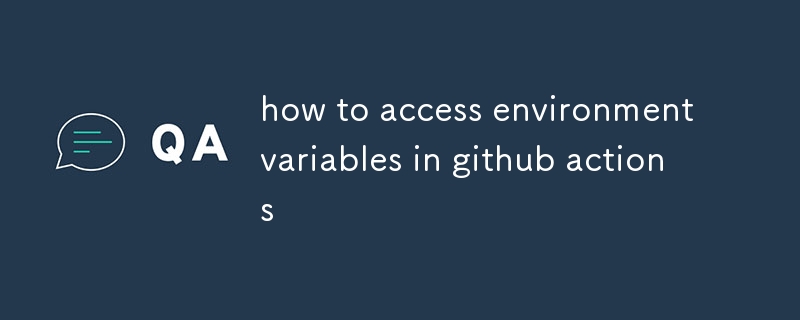
This article provides guidance on securely storing and accessing environment variables in GitHub Actions. It outlines best practices, such as using secrets to protect sensitive data and minimizing variable exposure. The article also includes troubles

Yes, you can securely store and access environment variables in GitHub Actions using the secrets feature. Secrets are encrypted at rest and can be accessed using the secrets context within your workflow. To store a secret, use the set-secret action:
<code>- name: Set secret
run: |
echo "API_KEY=${{ secrets.API_KEY }}" >> $GITHUB_ENV</code>Then, in a subsequent step, access the secret using the env context:
<code>- name: Use secret
run: |
curl https://api.example.com/v1 -H "Authorization: Bearer ${{ env.API_KEY }}"</code>Follow these best practices to use environment variables effectively in GitHub Actions:
1. Check the variable's value: Use the echo action to debug the values stored in an environment variable:
<code>- name: Print environment variable
run: |
echo $VARIABLE_NAME</code>2. Verify the secret's presence: Ensure that the secret is added in the GitHub Actions workflow secrets page.
3. Examine the workflow logs: The workflow logs can provide insights into potential issues with accessing or using environment variables.
4. Check the documentation: Refer to the GitHub Actions documentation for guidance and best practices related to environment variables: https://docs.github.com/en/actions/reference/workflow-syntax-for-github-actions#environment-variables
The above is the detailed content of how to access environment variables in github actions. For more information, please follow other related articles on the PHP Chinese website!




